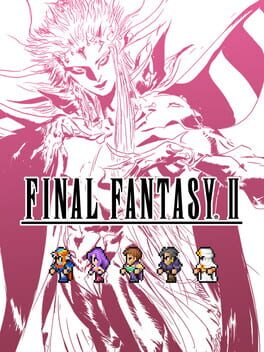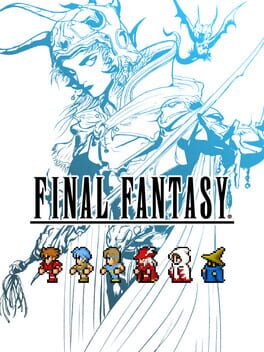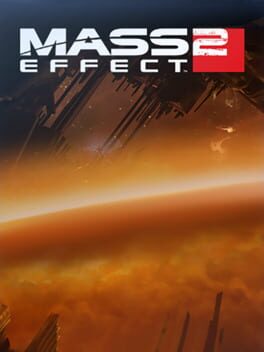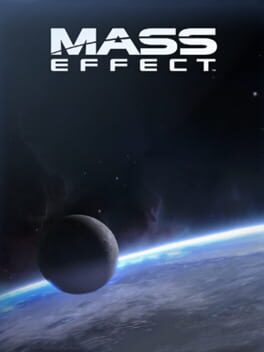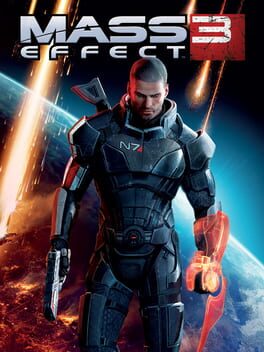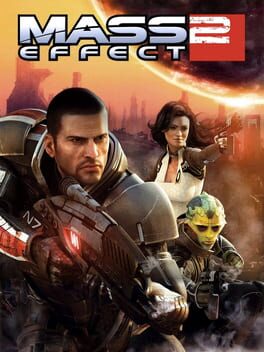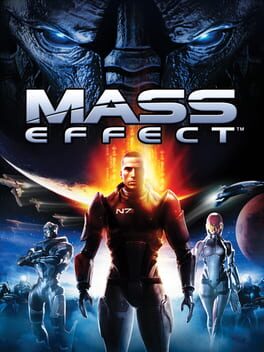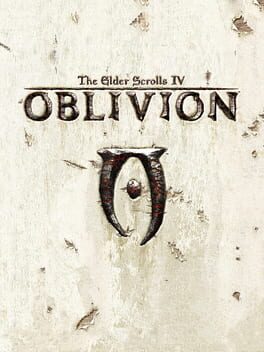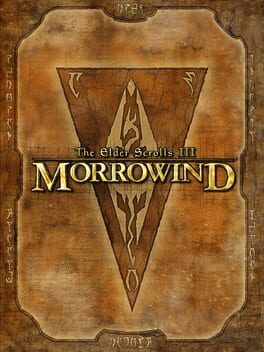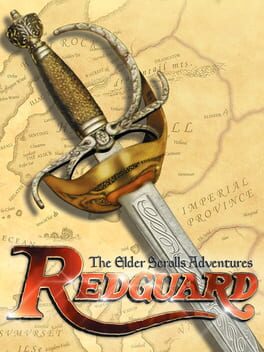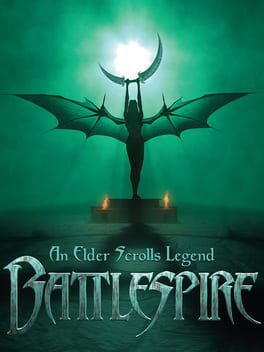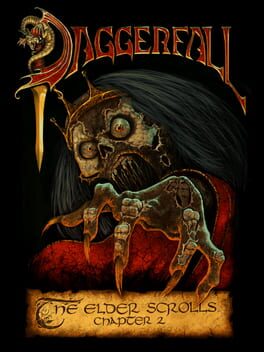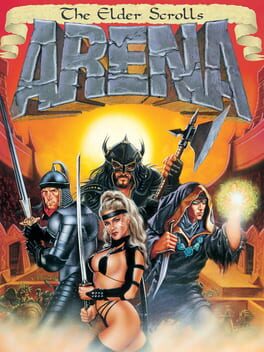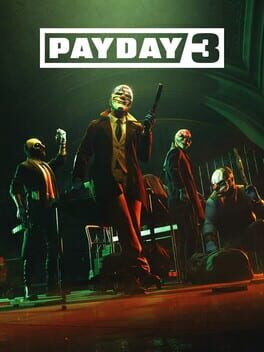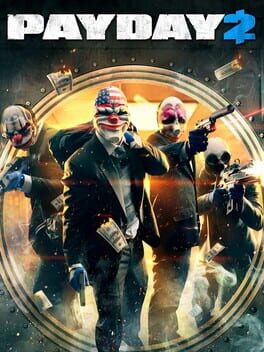Ripperley
2021
Final Fantasy II is a troubled game with a lot of potential buried under a mountain of problems. They tried a lot with FF2 but sadly most of it didn't work.
The levelling system is creative and I can see the vision of characters that can be grown however the player likes and grow as you use them in the direction you use them, but in practice it just encourages poor behaviour and playing like a maniac. Even the "fixes" offered by future releases like Pixel Remaster basically amount to the game cheating your skills, health and attributes up more quickly, freely and frequently to lessen the need to stand punching yourself in the face like a lunatic for hours on end.
The dungeon design too is a competitor for the worst in the entire Final Fantasy franchise, unrewarding mazes full of monster-closets that punish instead of rewarding you for looking around and taking the time to try to find all the loot and secrets the game has to offer. Once again the only fix PR could manage was to tone down the absurd encounter rates.
But despite all this there's still something in the game worth saving in it's story and general 'vibe'. While the story itself is simplistic and repetitive, and the characters too underdeveloped to form attachments all that strong with, the tone of Final Fantasy II is nonetheless incredible with a fantastic soundtrack even by the series standard and a somber mood throughout. Do you know any of the characters long enough or well enough to shed a tear when half the cast bites it? No, but the fact the game is brave enough to repeatedly kill party members and have them stay dead is something in itself, even if the repetition makes it lose weight it still has feeling behind it when people stay dead unlike something like Final Fantasy IV where the characters keep showing up alive again later on.
There's a feeling throughout FFPR that of the 8-bit and 16-bit FF games, there's more like three attempts each at two games between the odd class-based and even evil-empire-story-focused entries in the 2D series, but while Final Fantasy IV and VI are both better story-tellers and better games that Final Fantasy II I think FF2 nailed the mood the first time around in a way only the latter half of FF6 competes with.
Final Fantasy II is a lot of good ideas and things to love left underdeveloped in a generally pretty poor game. I can imagine a world where FF2 got the modern Squenix re-imagining treatment like FF7PR or Strange of Paradise and turning out something incredible, but I'm not entirely sure that the original is actually worth playing today.
The levelling system is creative and I can see the vision of characters that can be grown however the player likes and grow as you use them in the direction you use them, but in practice it just encourages poor behaviour and playing like a maniac. Even the "fixes" offered by future releases like Pixel Remaster basically amount to the game cheating your skills, health and attributes up more quickly, freely and frequently to lessen the need to stand punching yourself in the face like a lunatic for hours on end.
The dungeon design too is a competitor for the worst in the entire Final Fantasy franchise, unrewarding mazes full of monster-closets that punish instead of rewarding you for looking around and taking the time to try to find all the loot and secrets the game has to offer. Once again the only fix PR could manage was to tone down the absurd encounter rates.
But despite all this there's still something in the game worth saving in it's story and general 'vibe'. While the story itself is simplistic and repetitive, and the characters too underdeveloped to form attachments all that strong with, the tone of Final Fantasy II is nonetheless incredible with a fantastic soundtrack even by the series standard and a somber mood throughout. Do you know any of the characters long enough or well enough to shed a tear when half the cast bites it? No, but the fact the game is brave enough to repeatedly kill party members and have them stay dead is something in itself, even if the repetition makes it lose weight it still has feeling behind it when people stay dead unlike something like Final Fantasy IV where the characters keep showing up alive again later on.
There's a feeling throughout FFPR that of the 8-bit and 16-bit FF games, there's more like three attempts each at two games between the odd class-based and even evil-empire-story-focused entries in the 2D series, but while Final Fantasy IV and VI are both better story-tellers and better games that Final Fantasy II I think FF2 nailed the mood the first time around in a way only the latter half of FF6 competes with.
Final Fantasy II is a lot of good ideas and things to love left underdeveloped in a generally pretty poor game. I can imagine a world where FF2 got the modern Squenix re-imagining treatment like FF7PR or Strange of Paradise and turning out something incredible, but I'm not entirely sure that the original is actually worth playing today.
2021
The first Final Fantasy is a novel game to go back to and the modern accessibility features of the Pixel Remaster make it easier than ever to do so, but the game doesn't have too much to offer beyond historical value.
The gameplay is very simplistic and the story is near nonexistant, but it's fun to see how much of what would become the series long-running DNA was already around as of the first game.
The gameplay is very simplistic and the story is near nonexistant, but it's fun to see how much of what would become the series long-running DNA was already around as of the first game.
2021
Mass Effect 2 is incredible, a sci-fi adventure masterpiece that should sit alongside the likes of Star Wars as one of the genre greats.
There are some pitfalls here and there, such as concessions made to the RPG aspects of the game in favour of smoothing the clunkier gameplay of the original release of Mass Effect or a variety of content cut short or left unfinished due to either development time limits, console hardware limits (such as DVD size limits on the Xbox 360), or publisher backlash fears (such as Bioware cutting down on the freedom of available companion romance options), but even with all the wondering of what could have been put aside Mass Effect 2 is still a must-play for any fans of sci-fi or RPGs.
There are some pitfalls here and there, such as concessions made to the RPG aspects of the game in favour of smoothing the clunkier gameplay of the original release of Mass Effect or a variety of content cut short or left unfinished due to either development time limits, console hardware limits (such as DVD size limits on the Xbox 360), or publisher backlash fears (such as Bioware cutting down on the freedom of available companion romance options), but even with all the wondering of what could have been put aside Mass Effect 2 is still a must-play for any fans of sci-fi or RPGs.
2021
An incredible classic Space Opera adventure.
It might be outshined by it's sequel but the hunt for Saren across space with your rag-tag crew still makes for a very compelling adventure with a fun story and great characters.
The original version of the game feels a bit clunky to play now with in particular some pretty poorly aged gunplay, though the Legendary Edition remaster cleans that up a lot and lets the game stand tall next to Mass Effect 2.
It might be outshined by it's sequel but the hunt for Saren across space with your rag-tag crew still makes for a very compelling adventure with a fun story and great characters.
The original version of the game feels a bit clunky to play now with in particular some pretty poorly aged gunplay, though the Legendary Edition remaster cleans that up a lot and lets the game stand tall next to Mass Effect 2.
2012
Mass Effect 3 feels like a frustrated writer spitting on the previous games in the series because he had to work on a sequel to someone else's work.
Mass Effect 2 is a darker game than Mass Effect 1, but both games are "Space Opera" adventures. Mass Effect 3 is not a Space Opera, it is a war story begrudgingly told in space. It's not impossible to do a genre pivot like that well, but Mass Effect 3 doesn't do that well. Mass Effect 3 feels like the (new for this game) writer's gritty unrelated war story wearing the skin of the Mass Effect series grotesquely stretched over it's face because it's not the project the writer actually wanted to be working on. Plot hooks and intrigue as to the true motives behind the Reapers and overarching narratives from past games are completely thrown out for derivative and uninspired motivations delivered by ridiculous deus ex machinas that weaken the past games and their stories by association and retrospective context. While there are some nice character moments with companions from the previous games if you import a save file, the game at time feels outright contemptuous of being part of an ongoing story and like any "happy outcomes" made possible or easier through past decisions are handed over with a scowl like the writer's hand is being forced. Shepard no longer feels like your character and simply the writer's pre-written protagonist, any pro or anti Alliance, Council or Cerberus sentiments you pushed in past games thrown of the window for the pre-assigned ideals and beliefs of the new writer's ideal player character.
The gameplay can't even save Mass Effect 3 if you enjoy playing the series on a higher difficulty. Sure, the gunplay and usable powers are some of the most fun they've been in the series, but the enemy and encounter design comparative to previous games is a tedious, unfun slog of drawn out encounters that take the weakest points of Mass Effect 2, the various arenas of wave survival into bullet-sponge bosses like on Horizon, and seem to base every other combat encounter on the same template.
The only things that come close to saving Mass Effect 3 are two truly incredible DLC in the forms of the Omega and Citadel DLCs, which are easily two of the highest points in the series, but even if you save them for last to end on a high note you're still going to have your spirits dampened by the infamously terrible ending that throws away three entire games worth of decision making for a choice between three pre-canned endings.
The multiplayer used to be fun for a laugh with friends, if not particularly deep or fleshed out, but it's been over a decade since the original version of ME3 released and LE3 removed the feature entirely so it's difficult to enjoy now.
Mass Effect 3 is overall an insult to the two games that came before it, only worth trudging through if you're commited to seeing your Shepard's story through to the end.
Mass Effect 2 is a darker game than Mass Effect 1, but both games are "Space Opera" adventures. Mass Effect 3 is not a Space Opera, it is a war story begrudgingly told in space. It's not impossible to do a genre pivot like that well, but Mass Effect 3 doesn't do that well. Mass Effect 3 feels like the (new for this game) writer's gritty unrelated war story wearing the skin of the Mass Effect series grotesquely stretched over it's face because it's not the project the writer actually wanted to be working on. Plot hooks and intrigue as to the true motives behind the Reapers and overarching narratives from past games are completely thrown out for derivative and uninspired motivations delivered by ridiculous deus ex machinas that weaken the past games and their stories by association and retrospective context. While there are some nice character moments with companions from the previous games if you import a save file, the game at time feels outright contemptuous of being part of an ongoing story and like any "happy outcomes" made possible or easier through past decisions are handed over with a scowl like the writer's hand is being forced. Shepard no longer feels like your character and simply the writer's pre-written protagonist, any pro or anti Alliance, Council or Cerberus sentiments you pushed in past games thrown of the window for the pre-assigned ideals and beliefs of the new writer's ideal player character.
The gameplay can't even save Mass Effect 3 if you enjoy playing the series on a higher difficulty. Sure, the gunplay and usable powers are some of the most fun they've been in the series, but the enemy and encounter design comparative to previous games is a tedious, unfun slog of drawn out encounters that take the weakest points of Mass Effect 2, the various arenas of wave survival into bullet-sponge bosses like on Horizon, and seem to base every other combat encounter on the same template.
The only things that come close to saving Mass Effect 3 are two truly incredible DLC in the forms of the Omega and Citadel DLCs, which are easily two of the highest points in the series, but even if you save them for last to end on a high note you're still going to have your spirits dampened by the infamously terrible ending that throws away three entire games worth of decision making for a choice between three pre-canned endings.
The multiplayer used to be fun for a laugh with friends, if not particularly deep or fleshed out, but it's been over a decade since the original version of ME3 released and LE3 removed the feature entirely so it's difficult to enjoy now.
Mass Effect 3 is overall an insult to the two games that came before it, only worth trudging through if you're commited to seeing your Shepard's story through to the end.
2010
Mass Effect 2 is incredible, a sci-fi adventure masterpiece that should sit alongside the likes of Star Wars as one of the genre greats.
There are some pitfalls here and there, such as concessions made to the RPG aspects of the game in favour of smoothing the clunkier gameplay of the original release of Mass Effect or a variety of content cut short or left unfinished due to either development time limits, console hardware limits (such as DVD size limits on the Xbox 360), or publisher backlash fears (such as Bioware cutting down on the freedom of available companion romance options), but even with all the wondering of what could have been put aside Mass Effect 2 is still a must-play for any fans of sci-fi or RPGs.
There are some pitfalls here and there, such as concessions made to the RPG aspects of the game in favour of smoothing the clunkier gameplay of the original release of Mass Effect or a variety of content cut short or left unfinished due to either development time limits, console hardware limits (such as DVD size limits on the Xbox 360), or publisher backlash fears (such as Bioware cutting down on the freedom of available companion romance options), but even with all the wondering of what could have been put aside Mass Effect 2 is still a must-play for any fans of sci-fi or RPGs.
2007
An incredible classic Space Opera adventure.
It might be outshined by it's sequel but the hunt for Saren across space with your rag-tag crew still makes for a very compelling adventure with a fun story and great characters.
The original version of the game feels a bit clunky to play now with in particular some pretty poorly aged gunplay, though the Legendary Edition remaster cleans that up a lot and lets the game stand tall next to Mass Effect 2.
It might be outshined by it's sequel but the hunt for Saren across space with your rag-tag crew still makes for a very compelling adventure with a fun story and great characters.
The original version of the game feels a bit clunky to play now with in particular some pretty poorly aged gunplay, though the Legendary Edition remaster cleans that up a lot and lets the game stand tall next to Mass Effect 2.
Oblivion is a contradiction.
On the one hand it's a wonderful mesmerising world with amazing characters as fun and interesting as they are goofy and campy, the questlines are interesting stories instead of a set of chores to climb ranks like in previous games, and the main quest feeling exciting from beginning to end.
On the other hand it's also a severely flawed train-wreck of a game. The levelling and world scaling are so poorly thought out and implemented that without very careful planning of your levels it can single-handedly ruin the game and turn it into a slog of mindlessly slapping seemingly bottomless health bars for minutes on end in every single enemy encounter, the titular Oblivion gates themselves number in the triple-digits but with only a single-digit set of possible layouts the quickly get so repetitive that you've seen all you need after only two or three.
Oblivion is, to me, an incredibly flawed masterpiece. It's buggy as all hell, a nightmare to run without constant crashes or fear of save corruption particularly on modern systems, and some of the core gameplay systems fight with all their might to make sure you can't enjoy the game properly without playing bizarrely to force an optimal levelling curve or get the best version of a levelled item. Yet despite all this, the strange denizens and colourful living world of Cyrodiil mesmerise me in a way very few game worlds have ever done before or since, the whacky dialogue and radiant AI may make the people of Cyrodiil feel strange or even outright schizophrenic at times but it also makes them feel alive and memorable. It's a damn shame Bethesda stripped back on the radiant AI in future games rather than developing it further, because for all the laughs people get out of it it's one of the things that really made Oblivion special.
Even the DLC is a contradiction. On the one hand, Horse Armour was the damned herald of the modern low value microtransaction, a rip-off that cemented low value micro-DLC and it's place in modern gaming. On the other, The Shivering Isles is one of the greatest video game expansion packs ever released. A large slice of the best of everything Oblivion has to offer, taking it's fun and creative writing, fun characters, great story and interesting living world and adding new interesting and (slightly) less repetitive dungeon designs to the mix along with a more Morrowind-like alien world of strange and interesting people, flora and fauna. It's dungeons can be a little over-long and maze like, and it's biggest flaw is that Oblivion's core problems or levelling and scaling still haunt it, but still an incredible expansion.
Oblivion is a must experience game, but even for first timers I'd recommend grabbing a couple of mods to smooth over the games biggest flaws before playing it.
To fix the level scaling problems I recommend:
- PistachioRaptor’s Attribute Progression Redesign, to make anything less than perfectly optimised levelling less punishing.
- Mitchalek’s Auto Update Levelled Items And Spells, to not feel like the game is punishing you for doing any of its content without grinding to level 20ish first.
- PushTheWinButton’s Real Retroactive Health Formula, Balanced Creature Stats & Balanced NPC Level Cap, to fix enemies turning into health sponges in higher levels and players being one-shot if you didn't rush up your Endurance immediately.
Still, I can't take mods into account when judging a game critically and as it comes out of the box Oblivion's flaws hold it back to just almost being a masterpiece.
On the one hand it's a wonderful mesmerising world with amazing characters as fun and interesting as they are goofy and campy, the questlines are interesting stories instead of a set of chores to climb ranks like in previous games, and the main quest feeling exciting from beginning to end.
On the other hand it's also a severely flawed train-wreck of a game. The levelling and world scaling are so poorly thought out and implemented that without very careful planning of your levels it can single-handedly ruin the game and turn it into a slog of mindlessly slapping seemingly bottomless health bars for minutes on end in every single enemy encounter, the titular Oblivion gates themselves number in the triple-digits but with only a single-digit set of possible layouts the quickly get so repetitive that you've seen all you need after only two or three.
Oblivion is, to me, an incredibly flawed masterpiece. It's buggy as all hell, a nightmare to run without constant crashes or fear of save corruption particularly on modern systems, and some of the core gameplay systems fight with all their might to make sure you can't enjoy the game properly without playing bizarrely to force an optimal levelling curve or get the best version of a levelled item. Yet despite all this, the strange denizens and colourful living world of Cyrodiil mesmerise me in a way very few game worlds have ever done before or since, the whacky dialogue and radiant AI may make the people of Cyrodiil feel strange or even outright schizophrenic at times but it also makes them feel alive and memorable. It's a damn shame Bethesda stripped back on the radiant AI in future games rather than developing it further, because for all the laughs people get out of it it's one of the things that really made Oblivion special.
Even the DLC is a contradiction. On the one hand, Horse Armour was the damned herald of the modern low value microtransaction, a rip-off that cemented low value micro-DLC and it's place in modern gaming. On the other, The Shivering Isles is one of the greatest video game expansion packs ever released. A large slice of the best of everything Oblivion has to offer, taking it's fun and creative writing, fun characters, great story and interesting living world and adding new interesting and (slightly) less repetitive dungeon designs to the mix along with a more Morrowind-like alien world of strange and interesting people, flora and fauna. It's dungeons can be a little over-long and maze like, and it's biggest flaw is that Oblivion's core problems or levelling and scaling still haunt it, but still an incredible expansion.
Oblivion is a must experience game, but even for first timers I'd recommend grabbing a couple of mods to smooth over the games biggest flaws before playing it.
To fix the level scaling problems I recommend:
- PistachioRaptor’s Attribute Progression Redesign, to make anything less than perfectly optimised levelling less punishing.
- Mitchalek’s Auto Update Levelled Items And Spells, to not feel like the game is punishing you for doing any of its content without grinding to level 20ish first.
- PushTheWinButton’s Real Retroactive Health Formula, Balanced Creature Stats & Balanced NPC Level Cap, to fix enemies turning into health sponges in higher levels and players being one-shot if you didn't rush up your Endurance immediately.
Still, I can't take mods into account when judging a game critically and as it comes out of the box Oblivion's flaws hold it back to just almost being a masterpiece.
The interesting and strange world of Morrowind and the rewarding sense exploration with static hand-placed and interestingly designed loot all over the game are the main draw of The Elder Scrolls III, but to enjoy it you have to climb over a steep hill of tedious main quest design and somewhat clunky combat that has aged less than gracefully.
Morrowind is an incredible RPG and more of an actual "RPG" than any other game in Bethesda's catalogue. You can be a maniac and murder anyone you like and just have quests dead-end break on you rather than the character waking up a few minutes later, you can get yourself locked out of progressing through a couple of the guilds by working with the wrong people in a different one. Reading the quest text to find your way around leads to a sense of exploration, adventure and discovery that can't be replicated when you're mindlessly following an objective arrow. And while there's no conventional fast travel, part of the reward with becoming familiar with the game is learning all the different ways to get around by teleportation, boat or silt-strider to functionally "fast travel" just as quickly but so much more immersively than in Oblivion or Skyrim.
That said the game is not without some pretty major flaws. Morrowind's main quest and a large amount of it's major side-questlines, while full of iconic and unforgettable characters like Caius Cosades and Dagoth Ur, are frankly all kind of terrible. Half of the main quest is spent walking circles around the map to do busywork for pointlessly remote NPCs, and most side-factions barely have a story at all. The combat too is a poorly aged beast, and while once you understand it the TTRPG style chance to hit will start to make sense and become intuitive it still feels terrible early on to flail wildly at your enemies with no result or feedback as to what's going on beyond a series of "whoosh"ing sounds. It tooks me a half dozen attempts at the game before Morrowind finally "clicked" for me and I wouldn't judge anyone for finding Morrowind just too archaic to really get on with, but I'm glad that eventually I did.
Morrowind is an incredible RPG and more of an actual "RPG" than any other game in Bethesda's catalogue. You can be a maniac and murder anyone you like and just have quests dead-end break on you rather than the character waking up a few minutes later, you can get yourself locked out of progressing through a couple of the guilds by working with the wrong people in a different one. Reading the quest text to find your way around leads to a sense of exploration, adventure and discovery that can't be replicated when you're mindlessly following an objective arrow. And while there's no conventional fast travel, part of the reward with becoming familiar with the game is learning all the different ways to get around by teleportation, boat or silt-strider to functionally "fast travel" just as quickly but so much more immersively than in Oblivion or Skyrim.
That said the game is not without some pretty major flaws. Morrowind's main quest and a large amount of it's major side-questlines, while full of iconic and unforgettable characters like Caius Cosades and Dagoth Ur, are frankly all kind of terrible. Half of the main quest is spent walking circles around the map to do busywork for pointlessly remote NPCs, and most side-factions barely have a story at all. The combat too is a poorly aged beast, and while once you understand it the TTRPG style chance to hit will start to make sense and become intuitive it still feels terrible early on to flail wildly at your enemies with no result or feedback as to what's going on beyond a series of "whoosh"ing sounds. It tooks me a half dozen attempts at the game before Morrowind finally "clicked" for me and I wouldn't judge anyone for finding Morrowind just too archaic to really get on with, but I'm glad that eventually I did.
While held back by cumbersome poorly aged controls and clunky hard to decipher combat, along with a fair dose of Adventure Game Logic, Redguard is far too charming an adventure to skip entirely and should be experienced at least in some way by any Elder Scrolls fan.
That said, should you play it yourself? The depends. If you've got an actual machine of the era laying around, or you're very well versed in either running old games in virtual machines or manually configuring different DOSBox forks and dgVoodoo to get it running properly in Glide mode, then definitely! But if you're not familiar with troubleshooting and getting old Windows 3.1 games to run on modern computers then I'd say not much is lost by watching a playthrough on YouTube rather than playing it yourself, the game as it's packaged on Steam and GoG comes in a pretty sorry state out of the box.
That said, should you play it yourself? The depends. If you've got an actual machine of the era laying around, or you're very well versed in either running old games in virtual machines or manually configuring different DOSBox forks and dgVoodoo to get it running properly in Glide mode, then definitely! But if you're not familiar with troubleshooting and getting old Windows 3.1 games to run on modern computers then I'd say not much is lost by watching a playthrough on YouTube rather than playing it yourself, the game as it's packaged on Steam and GoG comes in a pretty sorry state out of the box.
No amount of humorous dialogue can make up for a game so horrifically buggy even after a handful of official patches as to be, without hyperbole, almost unplayable. When it works, it's a very mediocre dungeon crawler with poor level design and extremely lackluster combat. The only positives are a few short seconds of funny voice lines and the mercy of the game being quite short.
At it's best, Daggerfall is a creative and bottomless feeling little RPG that holds up better than it has any right to and feels closer to a modern indie game than an archaic AAA. At it's worst, Daggerfall heartless, soulless slog of a game where the endless pit of vapid procedurally generated content wears down any sense of meaning to anything you do.
Despite being a theoretically enormous and endlessly vast game, you've seen everything Daggerfall has to offer in the first five minutes. Hand-crafted dungeons are few and far between and the procedurally generated ones are often nonsensical and an absolute slog to navigate with the game's difficult to read auto-map, the path to complete the main quest without failing it or missing a timer feels completely arcane and basically demands a strategy guide.
When I stick to the towns and live out my fantasy of being a fantasy handy-woman and jack-of-all-trades doing little errands, reading the semi-randomly generated dialogue and wandering village to village and slowly levelling up I can have tons of fun. The second I try to play the game 'as intended' and delve into the dungeons I have a miserable time.
Daggerfall is wide as an ocean but as deep as a puddle. It's a very interesting old game but it doesn't live up to the reputation it has garnered in recent years as a long lost gem.
I will say having tried it after finishing the original DOS version that the fan-made Daggerfall Unity version of the game does significantly improve the experience, especially if you use the hidden INI settings to improve dungeon generation and reduce the size of the pointlessly large and often empty random dungeons, but given this is a fan modification of the game it's unfair to judge the game as it was released based on these improvements.
Despite being a theoretically enormous and endlessly vast game, you've seen everything Daggerfall has to offer in the first five minutes. Hand-crafted dungeons are few and far between and the procedurally generated ones are often nonsensical and an absolute slog to navigate with the game's difficult to read auto-map, the path to complete the main quest without failing it or missing a timer feels completely arcane and basically demands a strategy guide.
When I stick to the towns and live out my fantasy of being a fantasy handy-woman and jack-of-all-trades doing little errands, reading the semi-randomly generated dialogue and wandering village to village and slowly levelling up I can have tons of fun. The second I try to play the game 'as intended' and delve into the dungeons I have a miserable time.
Daggerfall is wide as an ocean but as deep as a puddle. It's a very interesting old game but it doesn't live up to the reputation it has garnered in recent years as a long lost gem.
I will say having tried it after finishing the original DOS version that the fan-made Daggerfall Unity version of the game does significantly improve the experience, especially if you use the hidden INI settings to improve dungeon generation and reduce the size of the pointlessly large and often empty random dungeons, but given this is a fan modification of the game it's unfair to judge the game as it was released based on these improvements.
Simplistic but charming. The Elder Scrolls I: Arena is a rather primitive game that greatly outstays it's welcome by continuing long after it runs out of steam, the latter half of the game especially being a grind devoid of new ideas, but there's a lot of charm in it's early DOS RPG oddities and despite the flaws it's still interesting to go back and see where such a huge and influential series started. The CD version is definitely the way to go, the humorous voice acting in the few cutscenes present in the game may be sparse but it's a shame to miss out on.
2023
What a let down.
On a surface level PAYDAY 3 is still a fun enough co-op game to play with friends, but it's an unremarkable game that just cannot hold a candle to it's predecessor. At first glance it should be a straight improvement, the gunplay feels a lot better in PAYDAY 3 than PAYDAY 2 and the changes to stealth mechanics are a ton of fun, but even before getting to all the technical issues and problems outside of heist-to-heist gameplay the game just seems to lack soul.
The always online servers are a disaster and even to this day it feels like a gamble to play the game at all knowing that at any given second there's a chance we'll be thrown back to the menu and lose all progress we've made on a heist. The menus are terrible, poorly laid out and frustrating to navigate and lacking in over a decade of quality of life improvement PAYDAY 2 had built up over the years. The pricing on the season pass editions and recently released DLC are frankly disgustingly poor value and outright predatory trying to squeeze every penny they can out of what few loyal fans are left after the game flopped. The progression system is grindy, buggy and just plain tedious.
What should have been an easy win and seemed so promising given a bit of polish back in beta has turned out to be a complete let-down. What a sad way to end such an incredible series.
On a surface level PAYDAY 3 is still a fun enough co-op game to play with friends, but it's an unremarkable game that just cannot hold a candle to it's predecessor. At first glance it should be a straight improvement, the gunplay feels a lot better in PAYDAY 3 than PAYDAY 2 and the changes to stealth mechanics are a ton of fun, but even before getting to all the technical issues and problems outside of heist-to-heist gameplay the game just seems to lack soul.
The always online servers are a disaster and even to this day it feels like a gamble to play the game at all knowing that at any given second there's a chance we'll be thrown back to the menu and lose all progress we've made on a heist. The menus are terrible, poorly laid out and frustrating to navigate and lacking in over a decade of quality of life improvement PAYDAY 2 had built up over the years. The pricing on the season pass editions and recently released DLC are frankly disgustingly poor value and outright predatory trying to squeeze every penny they can out of what few loyal fans are left after the game flopped. The progression system is grindy, buggy and just plain tedious.
What should have been an easy win and seemed so promising given a bit of polish back in beta has turned out to be a complete let-down. What a sad way to end such an incredible series.
2013
When I broke bad, I never knew 'bout all this trouble I would have.
My thoughts on PAYDAY 2 have bounced back and forth between positive and negative about a half dozen times in the game's life from all the various controversies and catastrophic updates, but at the end of the day for all it's problems PAYDAY 2 is still one of the best cooperative multiplayer games I've ever played.
Between abandoning the original soundtrack release on Steam and leaving half of it unavailable for purchase or listening outside of the in-game jukebox to this day, trying to squeeze lootboxes into the game after promising never to add microtransactions, nickel-and-diming the playerbase with hundreds of pieces of often overpriced or low-value DLCs, balancing issues like the McShay Weapon Packs being borderline pay-to-win, repeatedly abandoning the console ports of the game across multiple generations and even towards the end of the game's life killing Linux support and filling the game with numerous new bugs and crashes just to launch a dying game on EPIC months before it's sequel comes out it's impossible to say PAYDAY 2 hasn't had it's flaws, OVERKILL have treat it's fans worse than dirt on some occasions throughout the games life.
But even with all that, even with the game being left full to the brim with irritating bugs and crashes as the devs move on, and even with the heavily weighted and unbalanaced meta for builds and weapons to succeed in higher difficulties, PAYDAY 2 is still a more fun and exciting cooperative shooter than anything I've played before or after it. Most heists in the game are interesting, exciting and dynamic and many of them feel completely different even when you're doing the same drill defence wave shooting over and over. The gunplay feels great and gun customization has an incredible amount of options, the pumping EDM soundtrack is easily one of the best soundtracks of the FPS genre, if not gaming as a whole, and with all the DLC there is an absolute ocean of content to get through if you're just starting.
As rocky as my relationship with this game has been over the years I can't in good faith pretend that PAYDAY 2 isn't both one of the best shooters and best cooperative experiences I've ever played through.
My thoughts on PAYDAY 2 have bounced back and forth between positive and negative about a half dozen times in the game's life from all the various controversies and catastrophic updates, but at the end of the day for all it's problems PAYDAY 2 is still one of the best cooperative multiplayer games I've ever played.
Between abandoning the original soundtrack release on Steam and leaving half of it unavailable for purchase or listening outside of the in-game jukebox to this day, trying to squeeze lootboxes into the game after promising never to add microtransactions, nickel-and-diming the playerbase with hundreds of pieces of often overpriced or low-value DLCs, balancing issues like the McShay Weapon Packs being borderline pay-to-win, repeatedly abandoning the console ports of the game across multiple generations and even towards the end of the game's life killing Linux support and filling the game with numerous new bugs and crashes just to launch a dying game on EPIC months before it's sequel comes out it's impossible to say PAYDAY 2 hasn't had it's flaws, OVERKILL have treat it's fans worse than dirt on some occasions throughout the games life.
But even with all that, even with the game being left full to the brim with irritating bugs and crashes as the devs move on, and even with the heavily weighted and unbalanaced meta for builds and weapons to succeed in higher difficulties, PAYDAY 2 is still a more fun and exciting cooperative shooter than anything I've played before or after it. Most heists in the game are interesting, exciting and dynamic and many of them feel completely different even when you're doing the same drill defence wave shooting over and over. The gunplay feels great and gun customization has an incredible amount of options, the pumping EDM soundtrack is easily one of the best soundtracks of the FPS genre, if not gaming as a whole, and with all the DLC there is an absolute ocean of content to get through if you're just starting.
As rocky as my relationship with this game has been over the years I can't in good faith pretend that PAYDAY 2 isn't both one of the best shooters and best cooperative experiences I've ever played through.
